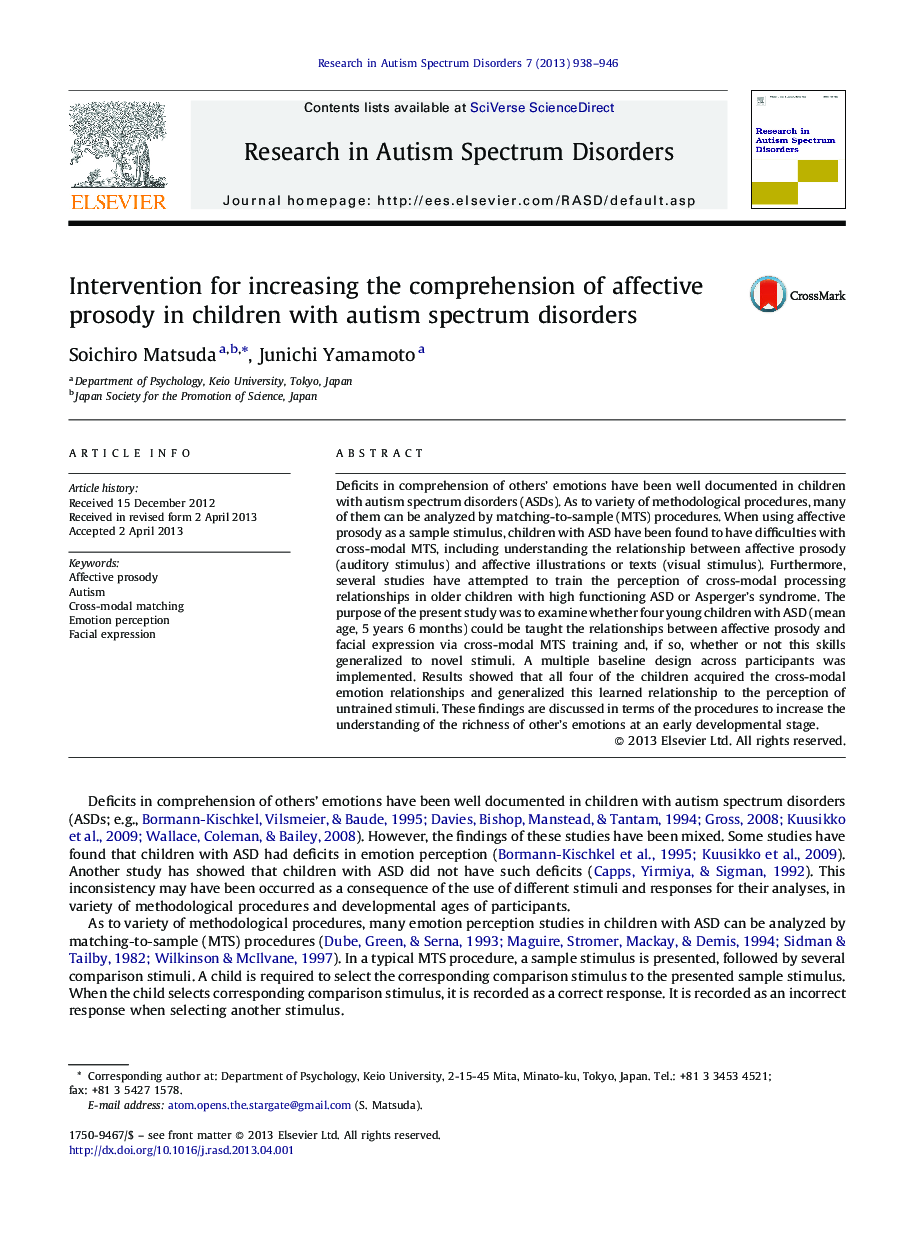| Article ID | Journal | Published Year | Pages | File Type |
|---|---|---|---|---|
| 10317167 | Research in Autism Spectrum Disorders | 2013 | 9 Pages |
Abstract
Deficits in comprehension of others' emotions have been well documented in children with autism spectrum disorders (ASDs). As to variety of methodological procedures, many of them can be analyzed by matching-to-sample (MTS) procedures. When using affective prosody as a sample stimulus, children with ASD have been found to have difficulties with cross-modal MTS, including understanding the relationship between affective prosody (auditory stimulus) and affective illustrations or texts (visual stimulus). Furthermore, several studies have attempted to train the perception of cross-modal processing relationships in older children with high functioning ASD or Asperger's syndrome. The purpose of the present study was to examine whether four young children with ASD (mean age, 5 years 6 months) could be taught the relationships between affective prosody and facial expression via cross-modal MTS training and, if so, whether or not this skills generalized to novel stimuli. A multiple baseline design across participants was implemented. Results showed that all four of the children acquired the cross-modal emotion relationships and generalized this learned relationship to the perception of untrained stimuli. These findings are discussed in terms of the procedures to increase the understanding of the richness of other's emotions at an early developmental stage.
Related Topics
Life Sciences
Neuroscience
Behavioral Neuroscience
Authors
Soichiro Matsuda, Junichi Yamamoto,
